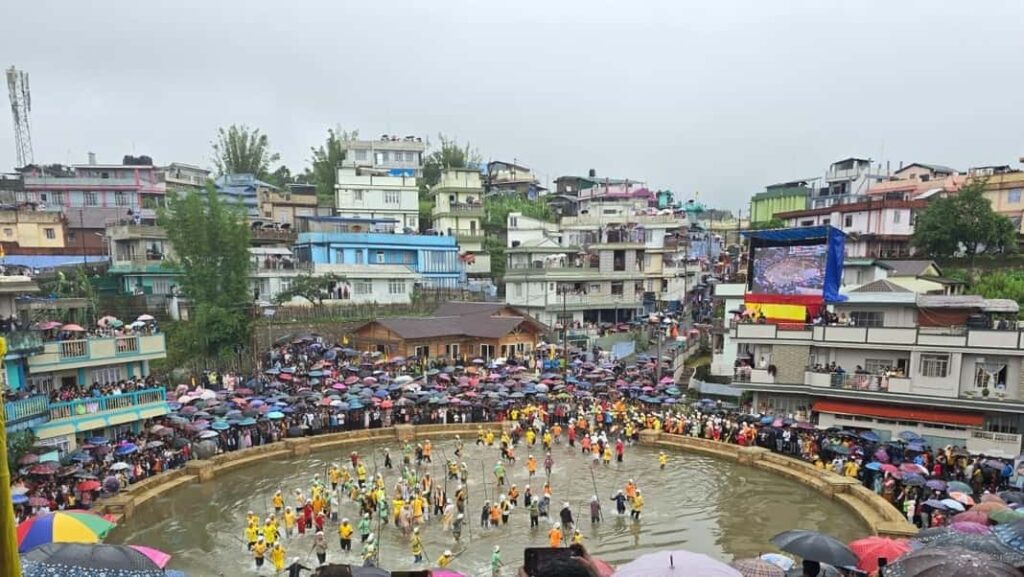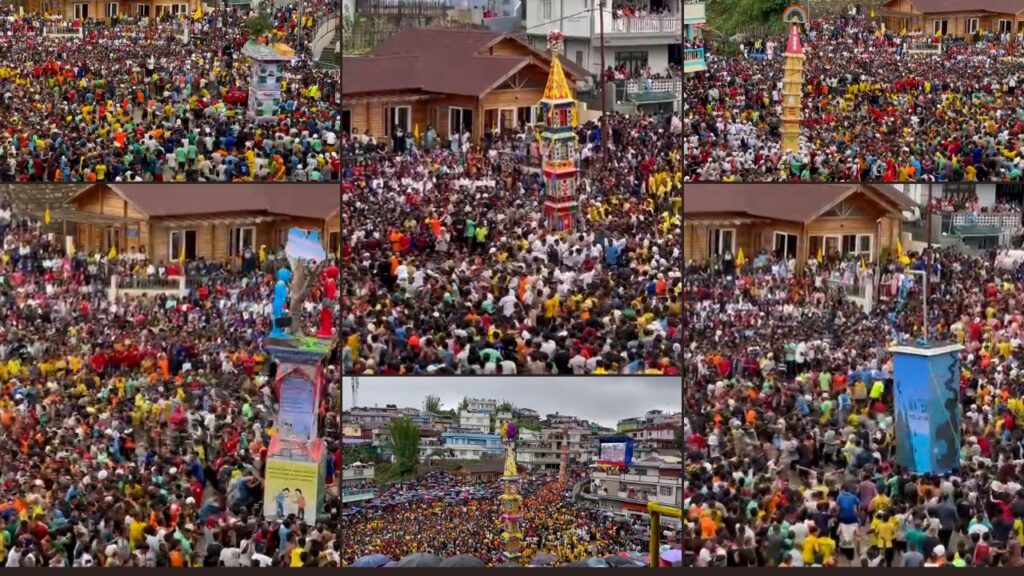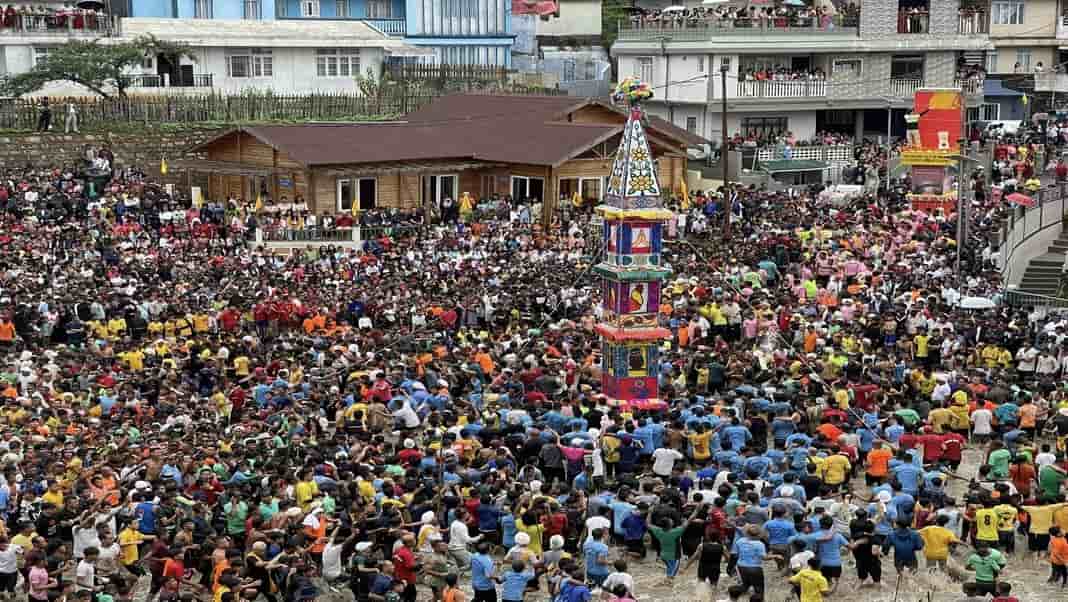Shillong, July 3: Behdeinkhlam, a four-day festival of the Jaintia tribal or pnar people in Meghalaya concluded on Wednesday amidst thousands of faithful taking part.

Expressing his happiness to be part of the festival, Chief Minister Conrad K Sangma said, “I take this opportunity to wish the people of the state a very happy Behdeinkhlam festival. This is one of the important festivals of the state. This is my third time that I am here visiting and being part of this festival and everytime I come here it becomes more and more colourful and more and more beautiful and I love the way that people celebrate it with so much of passion and so much of involvement.”
Asserting the importance of promoting the cultural identity of the indigenous people, Sangma informed that the government had spent Rs 6.5 crore for the development of the infrastructure at Aitnar.

“We are happy that we can always support this festival in every possible way. As you are aware even the infrastructure out here was created by the government through the Tourism department about 6.5 crore has been spent on this. And like this we always believed that maintaining the cultural identity of our state and of our people is of utmost importance,” he said while adding “So we are happy to support and we are happy to see that our people continue to celebrate in a very passionate manner, the different cultural festivals of our state.”

During the festival, revellers were seen participating in a ritualistic expression to overcome the destructive forces of nature including diseases and an invocation to God for a good harvest.
Considered as one of the important festivals of the State, it is celebrated during mid-July every year after the sowing season is over.
“Khlam” means ‘Plague or Pestilence’ and “Beh Dien” means to drive away the plague with sticks and religious fervor.
The main feature of the festival is the making of the “Dein Khlam ” and “Khnong ”, which are rounded, polished and straight tree trunks, felled from a forest. These trunks are brought to the Jowai town, a district headquarter in the eastern most part of the state, with great fanfare.

Earlier on Wednesday, the ‘Symbud Khnong’ , a log of great length was brought which thousands of people throng to get a chance to touch it.
It is believed that by touching the Khnong, it will protect them from all sorts of sicknesses besides prosperity in their works and businesses.
According to the niamtre faithful, Behdienkhlam is not all about driving away sickness but to also drive away such social evils that are inflicting the society.

The youth from different localities of the town also try out their artistic skills by erecting gaily coloured “rots” 10-40 feet tall structures built of bamboo, coloured paper and tinsel.
The Behdienkhlam ‘rots’ are built on wide ranging social issues – politics, environment protection besides others.
The rots were on display today at the Aitnar – a sacred pool.
The rots also carries strong message for preservation and protection of the environment and the mother earth besides the importance of combating social evils.
“Let’s take a pledge, to fight against corruption before it is too late”, “luck vs hard work, don’t rely on reservation” were some of the messages in the rots, which captivated the spectators.

The climax of the celebrations is the carrying of a large trunk known as ‘Khnong’ by the niamtre faithful to Aitnar.
People would run towards the Khnong to touch it as it is believed that by touching the Khnong it would bring them good health and prosper in their work and economic life.
Religious rites and sacrifices at the sacred pool precede the immersion ceremony in the early hours of the morning.
In the evening ‘datlawakor’, a football match played with a rounded wooden ball, is played between two teams from the upper and lower valleys of the Myntdu River.
The side that wins is believed to be blessed with a good harvest of the year. The Daloi or the traditional chief acts as referee in the match.
Find latest news from every corner of Northeast India at hubnetwork.in, your online source for breaking news, video coverage.
Also, Follow us on-
Twitter-twitter.com/nemediahub
Youtube channel- www.youtube.com/@NortheastMediaHub2020
Instagram- www.instagram.com/ne_media_hub





